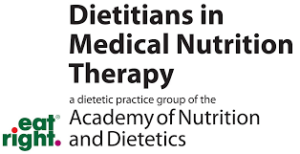NAFLD and lifestyle changes:
Healthy habits for weight management
Healthy eating and physical activity are important for weight management as well as overall health. If you have nonalcoholic fatty liver disease (NAFLD), they’re especially important.
For people with NAFLD, losing about 10% of current body weight has been shown to reduce inflammation and the amount of fat in the liver, which are linked to NAFLD. If you’re trying to lose weight:
- Aim for gradual weight loss (about ½ – 2 pounds per week). Avoid crash dieting or fasting.
- Focus on daily healthy habits instead of on weight loss alone. Think of weight loss as a side effect of a healthy lifestyle.
- Continue to eat healthy, even if you are taking weight loss medications.
Healthy eating
When it comes to NAFLD and healthy eating, here are some tips and strategies that can help.
Use MyPlate to plan healthy, well-balanced meals.
When you’re making a meal, try to include:
- ½ plate non-starchy veggies (like spinach, broccoli or peppers).
- ¼ plate lean protein (like lean cuts of red meat, chicken, seafood or tofu).
- ¼ plate whole grains, fruits or starchy vegetables (like potatoes, corn, peas or beans).
Reduce added sugar.
Some foods, like fruit, naturally have sugar. But there’s added sugar in many foods and drinks — like sodas, candies and desserts. A lot of other less-sweet foods also have added sugars, like salad dressings, condiments, pasta sauce, breads and cereals. When you’re choosing food:
- Read the nutrition label to find out how much added sugar there is. It’s listed below the total sugar.
- Try to limit added sugar to no more than 36 grams per day (for men) or 24 grams per day (for women).
- Choose drinks without added sugar — like plain water, sparkling water, unsweetened iced/hot tea or coffee.
- Avoid foods or drinks with high fructose corn syrup.
Limit the fat in your diet.
- Avoid fried foods, swap out high-fat dairy products for nonfat or low-fat options, choose plant-based proteins (like beans) and eat smaller portions.
- Limit saturated fat to about 7-10% of your total calorie intake. Saturated fat is in butter, fatty meats, processed meats and dairy products.
- Avoid trans fat, which is in margarine or foods with partially hydrogenated oil.
- Try to eat mostly unsaturated fat, which is in nuts, seeds, avocados, fatty fish and olive oil.
Reduce alcohol consumption.
- If you have NAFLD, experts recommend that you not drink at all.
- But if you choose to drink, limit yourself to 1 drink per day.
- One drink equals 12 ounces of beer, 8-9 ounces of malt liquor, 5 ounces of wine or 1.5 ounces of hard liquor.
Try the Mediterranean approach if you’re looking for a diet.
You’ve probably heard of fad diets like the keto diet or paleo diet, which are both high-fat, high-protein and low-carb diets. But it’s important to know that neither of these diets has been proven to work for long-term weight loss. Also, a high-fat diet can increase liver enzymes/fatty liver and/or cholesterol levels, which can worsen NAFLD.
If you want to try a diet, the Mediterranean approach is the best diet for overall health and for a range of health issues, including NAFLD. It focuses on:
- Fruits and vegetables (at least 5 servings per day, such as 3 vegetables and 2 fruits).
- Lean proteins (like chicken, fish, eggs, beans and lentils), low-fat dairy products and healthy fats (like nuts, seeds, avocados and olive oil).
- More whole grains (like whole wheat bread or brown rice) and fewer refined grains (like white bread or white rice).
- More whole foods (like fruits, vegetables and nuts that are found in nature) and fewer processed foods (like chips, sodas or snack bars) overall.
Physical activity
The Centers for Disease Control and Prevention recommends at least 150 minutes of moderate intensity activity a week. Here are some tips to help you work toward that goal:
- Try moderate intensity activities like gardening, walking, biking, water aerobics and tennis. During moderate intensity exercise, you can still talk, but you can’t sing because you’re breathing faster than usual.
- Many people break up the 150 minutes a week into 30 minutes a day, 5 days a week. But do whatever works for your schedule and lifestyle. For instance, if it’s easier to fit in a couple of 10-minute walks each day rather than one longer one, that’s fine.
- If you can’t do 150 minutes each week, do what you can. Every little bit of movement helps, and you can always build up to more.
- Make your physical activity fun and convenient — that’s the best way to keep at it!
Written by

Lorraine Bonkowski, RDN, and Lauren Cornell, MS, RDN
Reviewed by DIGID Workgroup members ©June 2022
This program is supported by an independent grant from Novo Nordisk.



